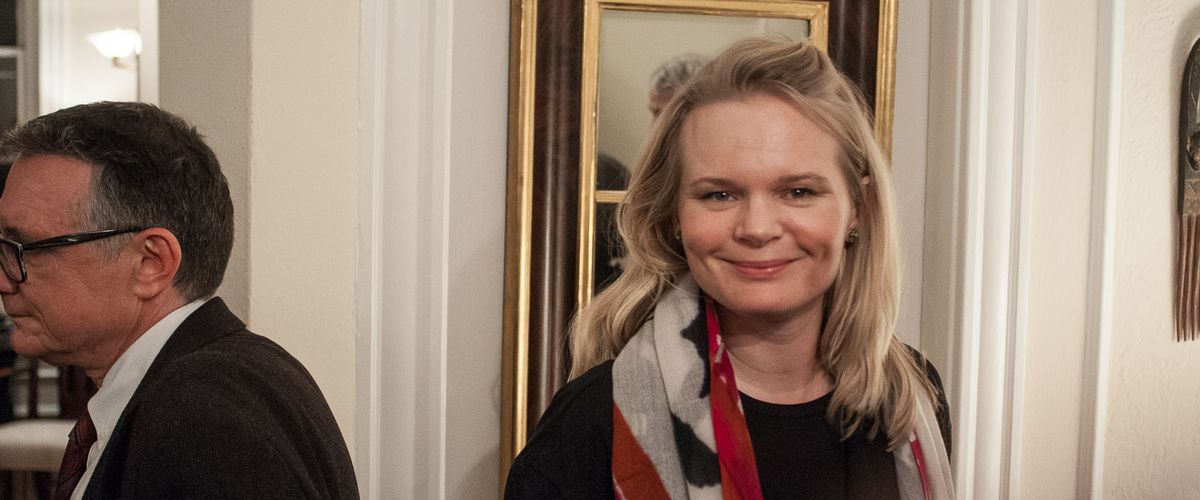Teaching
Prof. Schilde’s approach to teaching centers around a philosophy of active, democratic learning. At all course levels, she trains her students to engage directly and creatively with important questions about politics, society, markets, institutions, power, and international relations. She requires active participation and engagement, and in return she treats students as budding social scientists and policymakers, guiding them through a world of uncertainty, while incrementally deepening their skills and knowledge. Her pedagogical style harnesses complex empirical material as gateways for advancing analytical and reasoning skills. She uses current or historical events as puzzles requiring explanation, and guides students towards using methods, theories, and historical or comparative frameworks for problem solving. She does this through Socratic questioning, counterfactual thought experiments, cases, and scenarios which unfold in complexity over the course of a semester, slowly and incrementally shifting the responsibility to the students to align course material with their own logic of inquiry, and (in advanced courses) their own direct research projects using primary sources. In her midsize, mid-level courses, she has developed midterms and finals that often require unique and creative counterfactual reasoning, often tied to in-class presentations and research.
In smaller seminars, she asks students to take intellectual risks, identify puzzles, use theories and readings to generate hypotheses, and constantly engage students in modeling a logic of inquiry throughout the semester. She always emphasizes the ongoing uncertainty and the ‘curse of living in interesting times’ of any given topic, encouraging them to learn the history, the theoretical frameworks, and be able to identify patterns of consistency and change in the empirical material. She has designed research seminars focused on an understudied topic with many puzzles and only a handful of existing studies, to give the students an opportunity to work towards publishable work. For example, one advanced research seminar she co-developed (“Money, Guns, and Power”) engages with timeless and contemporary questions of political economy and security and is organized as a research workshop with the expectation that students can produce publishable material by the end of the semester.
She has also developed experimental, project-based learning. Her first experience with this format was a digital policy incubator course focused on forced migration and trafficking. Instead of written policy recommendations, students identified problems potentially resolved by digital tools. The class worked directly with NGOs and youth groups in the Calais Jungle in Northern France, attempting to address the multiple logistical problems facing an aid and refugee community in crisis. Many of the Jungle’s most vulnerable residents were unaccompanied minor (UM) children, with a lifeline of adult support from dedicated volunteer youth centers in the camp. Before and during the destruction of the camp, her BU class worked with Calais NGOs to transition to a digital communication system by helping distribute donated ‘brick’ cell phones to the 1000+ unaccompanied minors in the camp and developed a basic mass-texting tool adapted from humanitarian crisis situations.
The next version of the incubator course also focused on the Calais region, but one year later. The NGO needs had evolved to identifying unaccompanied minors for assisting them with aid distribution, such as data top-ups and asylum status information. The UMs have no papers, no IDs, and are averse to biometric data such as fingerprint identification. Prof. Schilde’s students created a product solution for the NGOs and the UMs to allow refugees to manage their own identities and allow NGOs to coordinate and track aid across their population, this time in the form of a basic wearable bracelet with a QR code printed inside, allowing for a simple smartphone scan by NGO volunteers to immediately access private individual data. This system allowed for refugees to work with NGO volunteers to manage their asylum cases or logistical needs, without putting them at risk by equipping them with smartphones that might track them or put them at further risk of criminal assault. In addition to being a teaching experiment, this class model has thus become a way of integrating classroom teaching with global policy impact and measurable research on human trafficking.
Finally, Prof. Schilde has further innovated her courses to adapt to pandemic learning, further honing her pedagogy along the way. In a year marked by academic stress and uncertainty, Prof. Schilde adapted her traditional seminar requirements of a final research paper to include an alternative final project of an “unessay”, meaning that students had to choose a concept, idea, policy, or implication they learned during the semester, and—through some medium—teach someone who did not take the class about this concept. She suggested an op-ed/Medium- or Substack-style essay, a timeline, a data visualization, a podcast interview, a small dataset, an art project, a website, a poem, a short video, an art project or animation, etc. Students also had to create an evaluation criteria/rubric for how a professor should evaluate the project, building upon on the following criteria: 1) demonstrates understanding of concept or idea, 2) explains why idea is important, 3) does not use jargon, 4) shows a significant effort, and 5) shows creativity or innovation. The student projects were phenomenal, and most of them produced something of great significance and creativity that truly would teach an outside citizen or student who did not take the course a key topic from the course.
